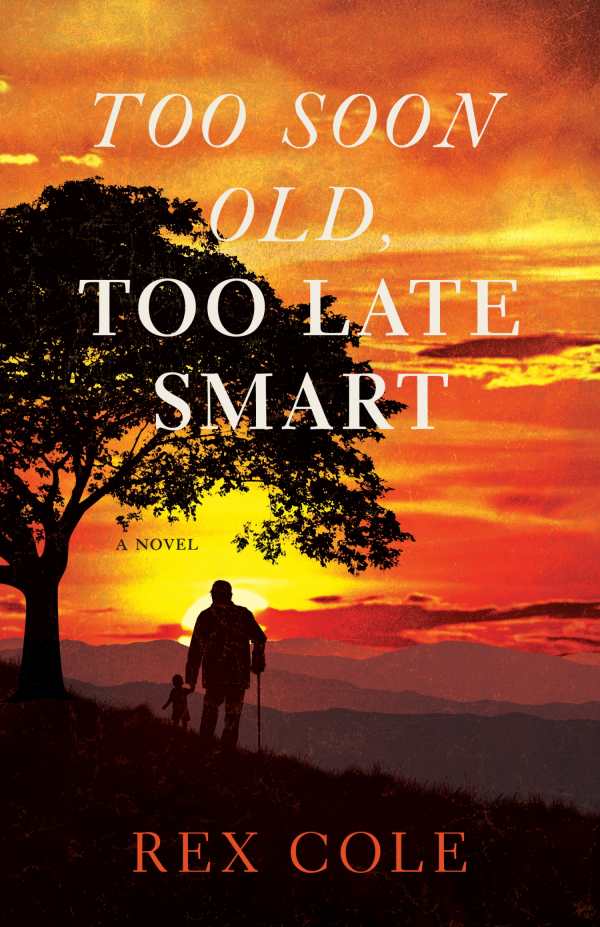Too Soon Old, Too Late Smart
Covering differing versions of a single life seen side by side, the reflective novel Too Soon Old, Too Late Smart is a satisfying dual adventure about a lifetime of joy and mysteries.
In Rex Cole’s touching novel Too Soon Old, Too Late Smart, a centenarian looks back on his life choices.
In many ways, Bob lived an ordinary, if unusually long, life. He has a vivacious, stubborn wife, a succession of dogs, and friends found in unexpected places. With his advanced age comes wisdom, including the knowledge that decisions that seemed inconsequential at the times they were made changed the course of his life. From deciding whether to stop or go at a yellow traffic light to providing an unexpected response to a surprising question, Bob’s movement from birth to death is shifting and illuminative.
The engaging scenes range from heartwarming misadventures that turn out to be more rewarding than his original plans to heartbreaking losses that push Bob to the limits of his endurance. Bob and his wife’s attempt to see a Willie Nelson concert is a highlight, while scenes of his wife’s degenerative illness and the death of a beloved pet are devastating. But these scenes are bookended by two quite different hundredth-birthday celebrations, and the story’s main conceit—that different chapters reflect different paths Bob’s life could have taken—only becomes clear far into the book.
As the book muses through how much changes and how much stays the same with each of Bob’s decisions, it proves propulsive and thought-provoking. And in the end, both versions of his life prove fulfilling in their own ways. Some of the longer chapters slow the book’s pace, though, featuring lengthy conversations and recitations of vacation itineraries. Further, the scenes are underdescribed and vague about their given time periods.
Aside from an early conversation with a forthcoming and unprofessional reporter, Bob’s conversations are fun and earthy, reflecting his fondness for and comfort with his closest loved ones. His voice is pointed and mischievous, revealing his flaws and appeal. He is willing to admit to his mistakes and grow past personal limitations, and he shares both versions of his life with aplomb. Indeed, the prose is marked by optimism, used to further highlight the book’s central themes: that a wealth of possible relationships, opportunities, and experiences are available to everyone; that there is no single path to happiness; and that contentment comes at different times and in different ways.
Too Soon Old, Too Late Smart is a charming nonlinear novel in which minor decisions have a major impact.
Reviewed by
Eileen Gonzalez
Disclosure: This article is not an endorsement, but a review. The publisher of this book provided free copies of the book and paid a small fee to have their book reviewed by a professional reviewer. Foreword Reviews and Clarion Reviews make no guarantee that the publisher will receive a positive review. Foreword Magazine, Inc. is disclosing this in accordance with the Federal Trade Commission’s 16 CFR, Part 255.

